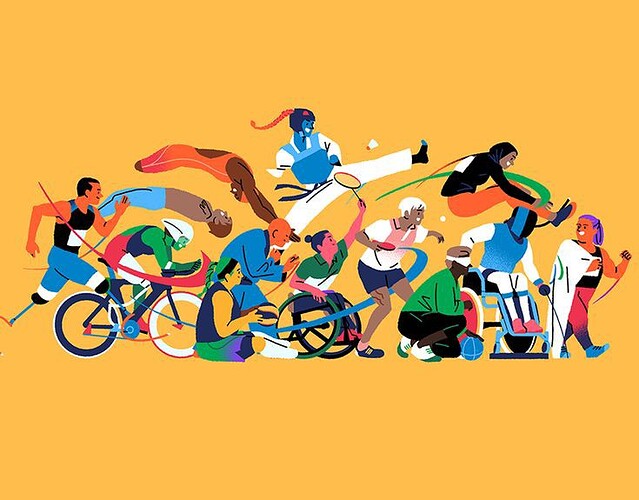India at Paralympics Over the Years, A Journey of Perseverance and Triumph.
The Paralympic Games, which began as a small event in Rome in 1960, has grown to become a global sports competition that celebrates the extraordinary achievements of athletes with disabilities. India, with its rich cultural heritage and a population of over 1.3 billion people, has made significant strides in the Paralympics over the years, proving that disability is not a hindrance to greatness.
India’s first Paralympic medal came in the 1972 Heidelberg Games when Murlikant Petkar won a gold medal in swimming. This achievement was a significant milestone for India, and it was a testament to the perseverance and determination of the Indian para-athletes.
In subsequent Paralympic Games, India’s performance continued to improve, with athletes winning medals in various sports such as athletics, powerlifting, shooting, and archery. However, it was in the 2004 Athens Paralympics that India truly made its mark, with a record haul of seven medals, including one gold, three silvers, and three bronzes.
India’s success in the 2004 Athens Paralympics was a turning point in the country’s Paralympic history. It demonstrated that Indian para-athletes could compete with the best in the world and win medals. Since then, India has won medals in every Paralympic Games, except the 2012 London Paralympics.
India’s performance at the 2016 Rio Paralympics was exceptional, with a total of four medals, including two golds, one silver, and one bronze. Mariyappan Thangavelu, who won the gold medal in high jump, and Devendra Jhajharia, who won the gold medal in javelin throw, were hailed as heroes in India.
The 2020 Tokyo Paralympics, which was delayed by a year due to the COVID-19 pandemic, was another momentous occasion for India. The Indian para-athletes put up an outstanding performance, winning a total of 19 medals, including five golds, eight silvers, and six bronzes, surpassing their previous record of 12 medals at the 2016 Rio Paralympics. India finished 24th in the overall medal tally, a significant improvement from their 43rd position in the 2016 Rio Paralympics.
India’s success at the 2020 Tokyo Paralympics was a result of the hard work, dedication, and support of the Indian government, various sports bodies, and sponsors. It was also a testament to the resilience and determination of the Indian para-athletes, who overcame various challenges and adversities to achieve their dreams.
In conclusion, India’s journey at the Paralympics over the years has been one of perseverance, hard work, and triumph. Despite the various challenges faced by Indian para-athletes, including lack of resources, inadequate infrastructure, and societal prejudices, they have shown that disability is not a hindrance to success. India’s success at the Paralympics has inspired millions of people, and it is a reminder that with hard work, dedication, and perseverance, anything is possible.

